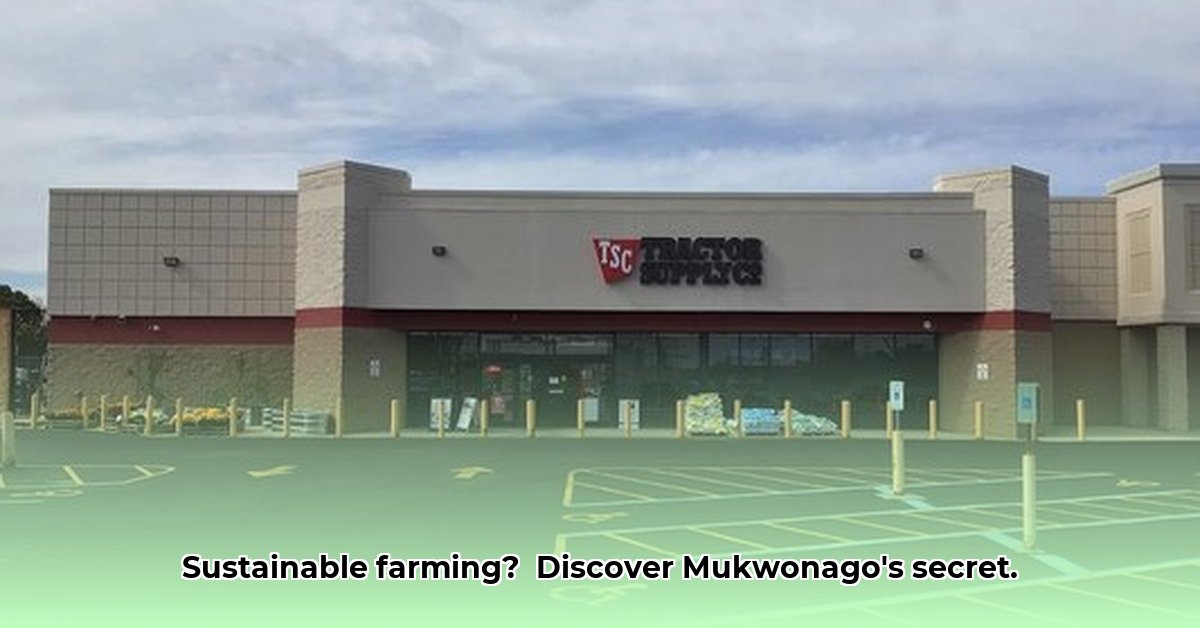
Mukwonago, Wisconsin's Tractor Supply Company (TSC) store occupies a unique position within its agricultural community. Its proximity to local farms suggests a potential significant, albeit indirect, role in promoting sustainable farming practices. However, determining the extent of this influence requires a deeper investigation than is currently available. This article explores the potential impact of the Mukwonago TSC, highlighting data gaps and proposing avenues for further research. The analysis focuses on the store's potential contribution to sustainable agriculture, emphasizing the need for a more comprehensive understanding of its practices. For more on tillers, see garden tillers.
How can Tractor Supply support sustainable farming practices in Mukwonago, WI?
The central question revolves around the degree to which the Mukwonago TSC actively facilitates sustainable agricultural practices. While the store's convenient location offers farmers easy access to supplies, the actual impact hinges on several crucial factors. Does the store offer a wide selection of eco-friendly products? Are these products prominently displayed and competitively priced? What is the level of engagement between the store and local farmers regarding sustainable practices? These are key questions driving the need for further investigation.
One could argue that simply making necessary supplies readily available indirectly supports sustainable farming. A farmer needing irrigation parts, for example, might save valuable time and resources by sourcing them locally. This freed-up time could then be invested in implementing sustainable farming methods. However, this indirect impact needs quantifiable evidence to be considered conclusive.
Key Takeaways:
- TSC's national sustainability goals, including ambitious carbon emission reduction targets, set a precedent for potential local impact. 1
- The effectiveness of TSC's sustainability initiatives hinges on transparent reporting and data collection, particularly regarding Scope 3 emissions (supply chain emissions).
- A significant data gap exists concerning the Mukwonago store's practices and their direct impact on local sustainable agriculture. Further research is required to bridge this gap.
- Understanding the Mukwonago store's role requires a detailed examination of stock inventories, farmer feedback, and community partnerships.
TSC's National Sustainability Efforts: Context and Caveats
Tractor Supply Company has publicly committed to ambitious sustainability goals, including aiming for net-zero emissions by 2040. Their progress report shows exceeding initial emission reduction targets, a positive step. 1 However, a lack of transparency surrounding Scope 3 emissions—those stemming from the company's supply chain—limits a full assessment of their overall environmental impact. Independent verification of their claims would enhance the credibility of these assertions.
Local Impact: The Mukwonago Perspective
TSC's national commitments should translate into local action. However, the extent of this translation remains unclear. The Mukwonago store's practices directly affect local farmers' ability to adopt sustainable methods. A critical next step involves determining: (1) Does the store actively stock and promote sustainable farming products? (2) Are local farmers aware of these options? (3) Are collaborative initiatives between TSC and local farms in place to promote sustainable practices?
Investigating Mukwonago's Practices: The Path Forward
Investigating the Mukwonago store's specific practices requires a multi-faceted approach. Several crucial areas require further research:
- Product Availability: A thorough inventory of sustainable farming products (e.g., water-efficient irrigation equipment, organic fertilizers, pest control solutions) is needed. This should include an assessment of product prominence and pricing.
- Farmer Engagement: Interviews with local farmers are crucial to understand their awareness of, and utilization of, sustainable products available at the Mukwonago store. This requires direct farmer feedback on the availability, affordability, and efficacy of sustainable products.
- Community Partnerships: Investigating collaborations, if any, between TSC and local organizations involved in sustainable agriculture would illuminate their community engagement.
This article provides a preliminary framework. Further research is crucial to accurately assess the Mukwonago TSC's influence on sustainable agriculture in the local community. A comprehensive understanding requires both quantitative data (inventory analysis, sales figures) and qualitative data (farmer interviews, stakeholder perspectives). Only then can a complete picture emerge of the store's actual contribution to local sustainability efforts.